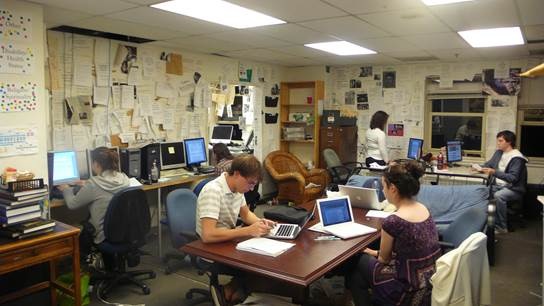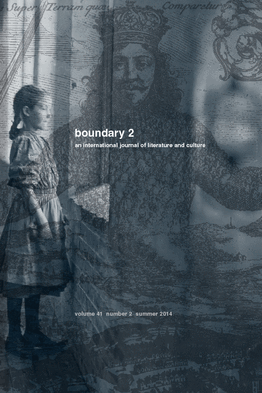Hans Ulrich Gumbrecht’s “The Future of Reading? Memories and Thoughts Toward a Genealogical Approach” asks a fundamental question: How does the younger generation of students and readers approach a text, and in which ways does their constant reading via one online device or another, as a ubiquitous electronic background activity, change their experience of interacting with the printed word? Gumbrecht bases his observations on two seminars that he taught in Santiago de Chile in 2013, in which Stanford undergraduates were reading fiction and nonfiction texts in both English and Spanish. While he notes that today’s younger readers possess breathtaking agility in identifying the key subject matters and problems of a text, he found their way of interacting with a text “endlessly puzzling.” Against a backdrop of the various methods and theories of reading from the past decades (e.g., deconstructive, cultural, hermeneutic), Gumbrecht asks what it means to have “everything always at hand” via various electronic forms of communication. If, for example, classic texts are those that have maintained their freshness and immediacy against the erosion of time, how is the electronic revolution, which makes the cultures and literatures of any time accessible to us, changing the “reading culture” of the younger generations? The questions and the argument developed in this essay go back to my contribution, on October 17, 2011, to the lecture series “How I Think about Literature,” in the Division of Literatures, Cultures, and Languages, at Stanford University.
The Future of Reading? Memories and Thoughts toward a Genealogical Approach

Read the full essay here.
Summer 2014
Comments
One response to “The Future of Reading? Memories and Thoughts toward a Genealogical Approach”
-
[…] boundary 2 has made available Hans Ulrich Gumbrecht’s “The Future of Reading? Memories and Thoughts toward a Genealogical Approach.” […]


Leave a Reply to A Couple More September Links (Spoiler, the US Still Has Nukes in Europe) | The Hyperarchival Parallax